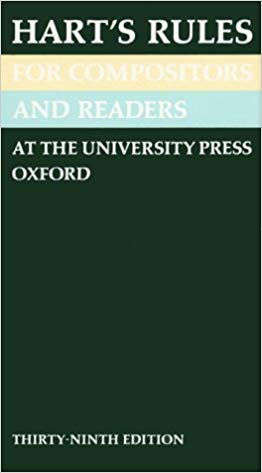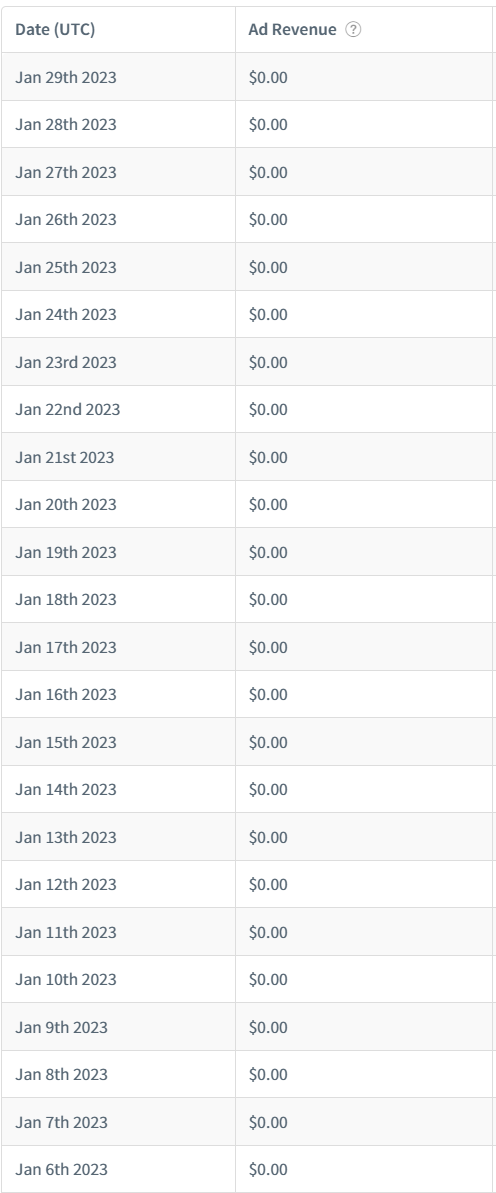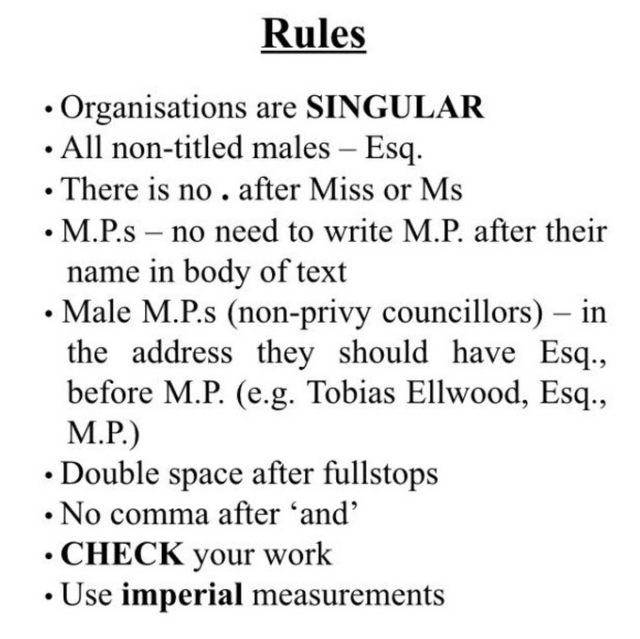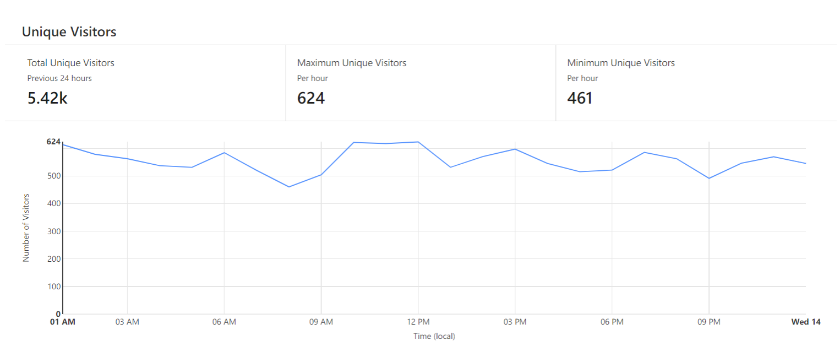 Usually, all our publications use Hart’s Rules. It’s well understood, enough compositors know it, and it’s a credible enough style guide for us to point at and use as a defence. There are some departures, which so far few have complained to me about.
Usually, all our publications use Hart’s Rules. It’s well understood, enough compositors know it, and it’s a credible enough style guide for us to point at and use as a defence. There are some departures, which so far few have complained to me about.
1. Citation style. The OUP publishes The British Year Book of International Law, which doesn’t follow Hart’s on citations; and we follow a version that can be found in older examples of the Year Book (you can tell it has to be an older one, for at some stage it was renamed The British Yearbook of International Law). It also happens to be the style I learned when I was starting out, from a book by Jost Hochuli, and I understand some use it on the Continent. Brexiteers will not approve.
2. Diphthongs. Man, I love diphthongs. How can you not? Typographically, these look great, and their abandonment, I believe, only came when typesetters using computers found it too hard. Today’s computers make it easy again, so I see no reason to not have them present again. Hart’s is silent on ligatures, so I’m quite happy to manœuvre Cæsar’s minutiæ.
3. I am not a fan of the American short scale, because at some point, the numbers are going to get ridiculously large and it’s going to be inconvenient to use it. Plus the Chinese language adopts long scales for names of numbers, so the British long scale makes more sense to my native culture. Ten to the power of nine is a thousand million or a milliard, not a billion, which traditionally (I believe till 1974, so within my lifetime) was ten to the power of twelve, or what the Americans call a trillion. So far our publications do not require massive numbers, so we still say three thousand million, but I suspect when we get into bigger figures, we may have to bring back milliard, which is still in the dictionary, albeit as a defunct term. On this, Jacob Rees-Mogg might be quite happy to agree as part of his mission to take the Commons back to the 19th century, before all this metric system nonsense, other than using milliard, which is just too French. Maybe when we get to citing American authorities, we may have to relent, and certainly in the Middle East, American English tends to be more greatly accepted.
4. Other than where requested, I go for the “road sign” approach to citing place names: Milano over Milan, Lyon over Lyons. On this, Chris Patten and I disagree. When doing transliterations and romanizations, I would actually write Beijing because that’s what a Beijinger would call their home town.
I probably won’t win the third one, as most of the two thousand million Anglophones disagree with me, and the ratio of one holdout versus a milliard plus aren’t great odds.






